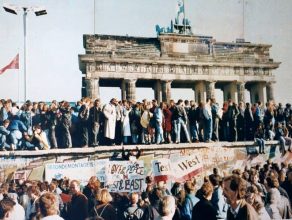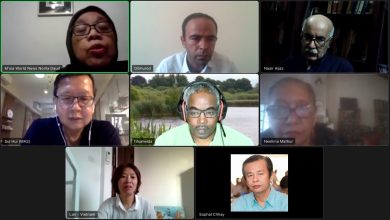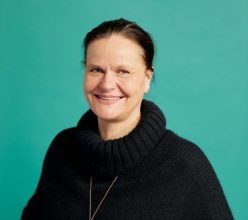Germany at 35: An Enduring Reunification, A Lesson for the Korean Peninsula (IV)
By Hassan Humeida
Kiel, Germany
As Germany commemorates 35 years of unity since the historic fall of the Berlin Wall, AsiaN is publishing a special series of interviews with Germans who reflect on the country’s path to reunification. These accounts capture the experiences of individuals who witnessed the effects of breaking down barriers and opening doors to a shared future.
The reflections, marked by fairness and authenticity, highlight themes of dignity, resilience and hope. They move beyond surface narratives to offer deeper perspectives on the significance of reunification for Germany and for the world.
In keeping with its mission to present journalism grounded in shared humanity, AsiaN is committed to sharing these stories with readers across Asia and well beyond it.
Through these voices and their enduring messages, AsiaN seeks to remind the world that reconciliation, unity, and the bridging of divides are achievable ideals in today’s world.
Reunification is a joint project that will succeed only if people are not played off against each other.

Interview with Thomas Petersen – Kiel, Germany
My own experiences as a young person before German reunification
Born in 1971, I spent the years before reunification as a child of the West Germans near the city of Kiel. My daily life was dominated by school and lots of time spent outdoors. My knowledge of the German Democratic Republic (GDR) came mainly from my parents and school lessons.
My only real contact with the GDR was during a school trip to West Berlin when I was about 15 or 16 years old. Passing through the GDR was a strange experience. We also spent a day in East Berlin, where we were forced to exchange 25 Deutschmarks.
I remember how difficult it was to spend the money, as everything was so cheap and bringing East German marks with us was forbidden. Despite the initial unease, the feeling in East Berlin subsided over time.
My feelings during the German reunification process
When the Wall fell, I was 19 years old and I was overwhelmed by the events unfolding in the East. The images of people crossing over in their Trabants, the cheers at the border crossings, and the way they were welcomed, with gifts and food, are unforgettable. It was equally impressive to see people standing on the Wall and smashing it.
The emotions were so intense that they are hard to put into words. I was at a disco with friends when Westernhagen’s “Freiheit (Freedom)” was played at midnight. It was a moment of pure joy and euphoria.
Personally, I felt neither fear nor insecurity during that time. The joy of what had happened far outweighed everything else.
How my life and society have changed in the last three decades
The biggest positive personal change in my life was meeting my first girlfriend from the island of Rügen in a discotheque near Kiel – a meeting that would never have been possible without the fall of the Berlin Wall. Furthermore, the fall of the Berlin Wall opened up the opportunity to meet and visit many wonderful new people and relatives in the East.
What I love about Germany as my home
Above all, I love Germany’s democracy, which allows people to travel anywhere and enjoy freedom of expression. I appreciate the structure and hard work of the Germans, as well as the stable social system that offers help to anyone who accepts it. I also like the culture, especially the preservation of regional traditions in the countryside.
For me personally, home means the Baltic Sea and the sea. I enjoy being on the coast, even during storms when the waves are surging. One of my favorite stories is Theodor Storm’s “The Rider on the White Horse,” a story that explores the conflict between tradition and modernity on the dike.
My love for my homeland is especially true for the traditions of North Frisia, whether it be drinking tea and grog, burning ‘Biike’ (a kind of beer) or regional dishes such as kale.
My own perspectives on the lessons of German reunification for Korean reunification
German reunification offers Korea several important, albeit painful, lessons. The most important lesson is the realization that human and social cohesion costs more in the long run than the initial economic alignment.
Korea must avoid this mistake. The process must be slower and more gradual so as not to overwhelm North Korea’s economy.
Furthermore, Korea must learn to accept its different identities. In Germany, East and West Germans were quickly stigmatized. Korea must establish a culture of respect from the outset, recognizing the experiences and cultures of both sides as equal. Reunification is a joint project that will succeed only if people are not played off against each other.
Benefits I see for Korea and its future regarding a possible reunification of the Korean Peninsula
The greatest benefit would be the end of human suffering and division. For millions of families, the barrier of grief would disappear, and the people of North Korea would attain the most basic human rights and freedom.
Economically, a global economic power would emerge. South Korea’s high-tech industry would be combined with North Korea’s rich natural resources and comparatively lower labor costs. This would not only open up enormous new opportunities for the Korean people but also become a driving force for the entire region.
Geopolitically, a unified Korea would become an anchor of stability in East Asia. The constant threat of nuclear weapons and military confrontation would be eliminated. Korea could invest its resources, currently tied up in defense, in education and infrastructure, and become a symbol of hope for divided peoples around the world.
What the path to tolerant and respectful coexistence among people worldwide looks like?
The path to tolerant and respectful coexistence begins with value-free encounters. We must stop judging others based on their traditions, values, or beliefs, or imposing our own values on them. Acceptance is key; we can only learn from each other if we are open to it.
Peace and security in the world mean the following to me:
For me, peace means, above all, acceptance of others – recognizing diversity instead of simply criticizing it. Peace can only be achieved through dialogue, but this requires tolerance on all sides and a willingness not to always insist on one’s own opinion. A balance must be found that everyone can live with.



